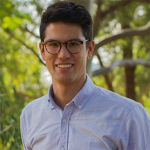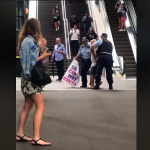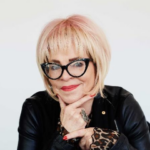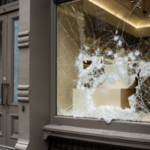France Refuses to Glorify Terrorists
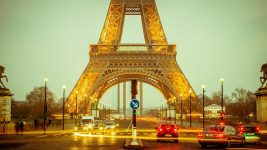
Several French media outlets have pledged to stop publishing the names and images of attackers linked to Islamic State in order to prevent them from being glorified.
The pact is part of a wider debate about how media reports may be contributing to terrorism, with the French government currently discussing changes to the law which may place restrictions on media reporting.
Participating Media Outlets
The director of Le Monde, Jerome Fenoglio, said his newspaper would stop publishing photographs or biographies of attackers in a bid to prevent the “possible posthumous glorifying effects”. He called for news media to exercise more responsibility in this respect.
The change follows a previous decision not to republish images from Isis propaganda documents. Fellow daily newspaper, La Croix, has also signed up to the voluntary code
Radio Europe-1 has pledged “not to read out terrorists’ names” in order to “stop them being turned into heroes.” The France 24 television channel is also expected to announce that it will no longer identify or depict terrorists in its broadcasts.
Television station BFM-TV has also joined the pact. BFM was heavily criticised in January 2015 for its coverage of a deadly attack on a Jewish supermarket in Paris, in which four hostages were killed. Six survivors, who were hiding in the supermarket, accused the channel of endangering their lives by revealing the location of their hideout live on air.
But not all media outlets have signed up. State run France Television has argued against the practice, calling it a “race toward self-censorship.” Michel Field, the executive director of the station, said it was a fundamental right of French citizens to be fully informed of these important events. Other newspapers such as Le Figaro and Nouvel Observateur, have also resisted the move.
Arguments in Favour
French judge David Benichou expressed the view that, “The media is the oxygen of terrorism.” He believes media outlets are acting as publicity firms for terrorist organisations, facilitating the spread of terrorist propaganda worldwide.
In the aftermath of the Nice attack, psychoanalyst Fethi Benslama said the perpetrators of terrorist attacks were driven by the fame and adulation of fellow fundamentalists. Benslama believes this “glorification” encourages others to carry out attacks “to gain glory in the eyes of their commanders and their friends”. He pointed to the fact that terrorists often leave their driver licences or passports at the crime scene for the purpose of being quickly identified.
Charlie Beckett, the founding director of journalism think tank Polis, agrees with this argument. He believes such glorification helps terrorist groups recruit and fundraise, while inspiring copycat attacks.
University of Western Australia professor Michael Jetter says “media attention does indeed predict future terrorist activities”, arguing that coverage of terrorist attacks should be subject to similar restrictions as suicides.
Arguments Against
David Thompson, a journalist and expert on jihadism, has criticised the way in which jihadi motivations have been characterised. He believes “The heroization process is within the ‘jihadosphere’”, and that outside forces like the media have no bearing on an individual’s decision to be “martyred”.
Al Jazeera Arabic TV anchor Mhamed Krichen is also against media restrictions, believing it to be simplistic and the beginning of a slippery slope into censorship.
“If we adopt Le Monde’s position regarding photos of terrorists… I would ask the same question of people such as (Syrian President) Basahar al-Assad, who is a real terrorist against his people,” he added.
Australia
Like in many other countries, Australian media outlets are primarily interested in selling papers and achieving high ratings. To date, they have given terrorist attacks front page and headline coverage; after all, “if it bleeds, it leads”.
It will be interesting to see whether the French approach will be followed here or by other developed nations.


